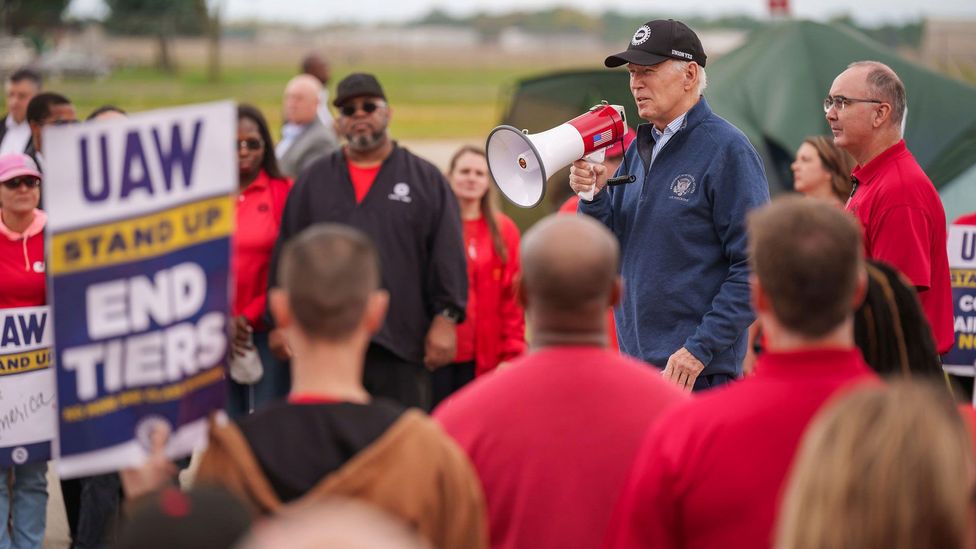Introduction
The ‘What About Us?’ strikes in Hollywood sent shockwaves through the entertainment industry. As the dust settles, the fallout becomes apparent. In this article, we’ll examine the consequences, lessons learned, and the path forward for labor practices in the world of entertainment.
The ‘What About Us?’ Strikes
The ‘What About Us?’ strikes were a collective outcry from various unions and guilds within Hollywood. They reflected deep-rooted discontent among professionals in the entertainment industry, including actors, writers, and production crews. The central demand was for equitable treatment and fair compensation.
The strikes highlighted the disparities in an industry that was evolving due to the growing influence of streaming platforms. Issues such as royalties, residuals, and working conditions came to the forefront, culminating in the rallying cry of ‘What About Us?’
Fallout on Productions
The immediate fallout of the strikes was evident on ongoing film and TV productions. Sets were deserted as actors, writers, and crew members walked out. Studios and production companies were forced to confront disruptions, financial losses, and delays.
These consequences underscored the critical role that the workforce plays in the industry. The strikes made it clear that the success of Hollywood depends on the collective efforts of the professionals working behind the scenes.

Lessons Learned
The ‘What About Us?’ strikes were not in vain. They led to several significant lessons:
- Unity Matters: The strikes demonstrated the strength of collective action. Professionals from various segments of the industry united to push for change, emphasizing the importance of solidarity in addressing long-standing issues.
- Industry Dynamics Are Shifting: The protests highlighted the impact of streaming platforms on the entertainment landscape. It became clear that compensation models needed to adapt to this evolving terrain.
- Fair Compensation Is Non-Negotiable: The ‘What About Us?’ movement underscored the necessity of fair compensation for industry professionals. It made it clear that outdated models were no longer acceptable.
- Dialogue Is Essential: The strikes initiated a dialogue between industry workers, studios, and streaming platforms. Communication became the key to finding common ground and moving forward.
Streaming Platforms Under Scrutiny
The rise of streaming platforms like Netflix, Amazon Prime, and Disney+ significantly influenced the ‘What About Us?’ strikes. The digital streaming era brought transformative changes to the industry, but the compensation for content on these platforms failed to keep pace.
The movement called upon streaming platforms to recognize the importance of fairly compensating actors, writers, and production crews whose work was featured on their platforms. This scrutiny led to discussions on new compensation models to bridge the divide.
The Road Ahead
The ‘What About Us?’ strikes have initiated a process of reflection and change within Hollywood. The industry is in the midst of revising compensation structures and working conditions. Studios, production companies, and streaming platforms have begun negotiations with industry unions and guilds to address these pressing issues.
The path forward involves an overhaul of how compensation is calculated and distributed. Streaming platforms are making adjustments to better reward content creators and industry professionals. Studios and production companies are reassessing their agreements to align with the evolving dynamics of the industry.
Conclusion
The ‘What About Us?’ strikes in Hollywood were a wake-up call for the entertainment industry. Their consequences will continue to reverberate, steering the industry toward fairer labor practices. The movement not only reshaped Hollywood but also initiated a broader conversation about labor rights and just compensation in the dynamic gig economy of the 21st century. It is a critical moment in the industry’s history, one that has the potential to transform it for the better.




